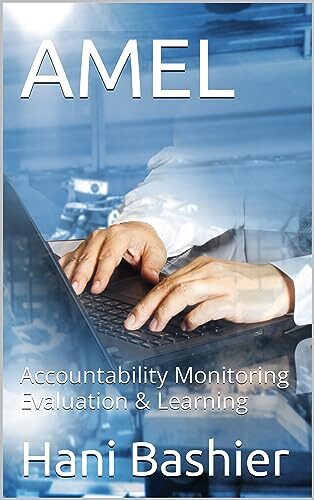Short-Term Monitoring, Evaluation, Accountability, and Learning: A Focused Approach for Immediate Program Improvements
Short-term Monitoring, Evaluation, Accountability, and Learning (MEAL) encompasses the processes, tools, and practices that enable organizations to systematically track, assess, and improve program performance in the immediate or near-term. This focused approach to MEAL is particularly relevant for projects or interventions aimed at addressing urgent needs or achieving rapid, tangible results. By prioritizing timely, actionable information and flexible adaptation, short-term MEAL can help organizations to quickly identify and address challenges, maximize opportunities, and enhance the effectiveness, efficiency, and impact of their programs.
This comprehensive guide will discuss the key features and elements of short-term MEAL, explore the benefits and challenges of adopting a short-term MEAL approach, and provide practical strategies and tips for implementing and strengthening short-term MEAL systems and practices. The guide will cover the following topics:
- Key features of short-term MEAL
- Benefits and challenges of short-term MEAL
- Strategies and tips for implementing short-term MEAL
- Case study: Applying short-term MEAL in a humanitarian emergency response
1. Key Features of Short-Term MEAL
Short-term MEAL shares many of the same principles, components, and dimensions as longer-term MEAL, such as relevance, utility, rigor, credibility, participation, inclusiveness, adaptation, and learning. However, short-term MEAL is distinguished by several key features, which include:
Time-Sensitivity and Urgency
Short-term MEAL is designed to provide organizations with timely, actionable information on program performance and impact, often within a limited timeframe or on an urgent basis. This may be particularly relevant for programs or interventions that are responding to rapidly changing or crisis situations, such as humanitarian emergencies, natural disasters, or public health outbreaks.
Focus on Immediate Results
Short-term MEAL prioritizes the measurement and analysis of immediate program outputs, outcomes, and impacts, as opposed to longer-term or more distal results. This focus on immediate results helps organizations to quickly assess the effectiveness, efficiency, and relevance of their program interventions, and to make rapid adjustments or adaptations as needed.
Flexibility and Adaptability
Short-term MEAL emphasizes the importance of flexibility and adaptability in program planning, implementation, and learning. This means that short-term MEAL systems and practices should be designed to be easily modified or updated in response to new information, changing contexts, or emerging needs and opportunities.
Rapid Feedback and Learning Loops
Short-term MEAL relies on rapid feedback and learning loops, which enable organizations to quickly capture, analyze, and act on program performance and impact data. These rapid feedback and learning loops help organizations to accelerate learning and adaptation, and to make timely, evidence-based decisions that enhance program effectiveness, efficiency, and impact.
2. Benefits and Challenges of Short-Term MEAL
Adopting a short-term MEAL approach can offer several benefits and advantages for organizations and programs, including:
Enhanced Responsiveness and Agility
By providing timely, actionable information on program performance and impact, short-term MEAL can help organizations to quickly identify and respond to emerging challenges, needs, and opportunities. This can enhance the responsiveness and agility of programs and interventions, and enable organizations to more effectively address urgent needs or capitalize on time-sensitive opportunities.
Faster Learning and Improvement
Short-term MEAL can accelerate the process of learning and improvement, by enabling organizations to quickly capture, analyze, and act on program performance and impact data. This can lead to more rapid program adaptations and innovations, and help organizations to continuously improve their program effectiveness, efficiency, and impact.
Greater Accountability and Transparency
Short-term MEAL can enhance accountability and transparency by providing relevant, accurate, and accessible information on program performance and impact to stakeholders, including donors, beneficiaries, and the wider public. This can help to ensure that resources are used responsibly and ethically, and demonstrate the value and impact of program interventions.
However, short-term MEAL also presents several challenges and potential risks, which organizations should be aware of and address:
Balancing Short-term and Long-term Perspectives
Focusing exclusively on short-term results and performance can sometimes lead organizations to overlook or undervalue longer-term or more distal program outcomes and impacts. To avoid this risk, organizations should strive to balance their short-term MEAL efforts with a longer-term perspective on program performance, impact, and sustainability.
Ensuring Rigor and Credibility
The urgency and time-sensitivity of short-term MEAL may sometimes compromise the rigor and credibility of program performance and impact data. To mitigate this risk, organizations should ensure that their short-term MEAL processes and practices adhere to the highest standards of methodological rigor, data quality, and ethical conduct.
Avoiding Overemphasis on Adaptation
While flexibility and adaptability are important elements of short-term MEAL, organizations should be cautious not to overemphasize rapid adaptation at the expense of other important dimensions of program performance, such as effectiveness, efficiency, and sustainability. To strike the right balance, organizations should carefully consider the potential risks and benefits of different adaptation options and prioritize those that are most likely to enhance overall program performance and impact.
3. Strategies and Tips for Implementing Short-Term MEAL
Implementing a short-term MEAL approach requires careful planning, coordination, and commitment from all levels of the organization. The following strategies and tips can help organizations to establish and strengthen their short-term MEAL systems and practices:
Align MEAL with Organizational Priorities and Goals
Ensure that the short-term MEAL system is aligned with the organization’s priorities and goals, and that it is designed to generate relevant, actionable information that supports strategic decision-making and program improvement.
Develop Clear, Measurable Indicators and Targets
Identify clear, measurable indicators and targets for immediate program outputs, outcomes, and impacts, and establish systems and processes for collecting, analyzing, and reporting on these indicators in a timely, accurate, and transparent manner.
Invest in MEAL Capacity and Infrastructure
Allocate sufficient resources and invest in the necessary capacity and infrastructure to support short-term MEAL activities, including staff, training, tools, technology, and systems. This will help to ensure that the organization can effectively collect, analyze, and act on program performance and impact data.
Foster a Culture of Learning and Adaptation
Promote a culture of learning and adaptation within the organization, by encouraging open communication, collaboration, and experimentation, and by celebrating successes and learning from failures. This can help to create an environment in which short-term MEAL is embraced and valued as a key driver of program improvement and organizational performance.
Establish Rapid Feedback and Learning Loops
Design and implement rapid feedback and learning loops that enable the organization to quickly capture, analyze, and act on program performance and impact data. These loops should be integrated into the organization’s existing decision-making processes and structures, to ensure that they are responsive and adaptive to new information and insights.
Engage Stakeholders in MEAL Processes
Involve relevant stakeholders, including program beneficiaries, staff, partners, and donors, in the design, implementation, and review of short-term MEAL processes and practices. This can help to ensure that the MEAL system is inclusive, participatory, and tailored to the needs and priorities of different stakeholder groups.
4. Case Study: Applying Short-Term MEAL in a Humanitarian Emergency Response
To illustrate the application of short-term MEAL in practice, consider the case of a humanitarian organization responding to a natural disaster in a low-income country.
In this context, the organization’s immediate priorities may include providing emergency shelter, food, water, and medical assistance to affected communities, as well as coordinating with other actors and stakeholders to ensure a timely, effective, and efficient response.
To support these priorities, the organization could establish a short-term MEAL system that focuses on the following elements:
- Collecting real-time data on the needs, vulnerabilities, and capacities of affected communities, using rapid assessment tools and methods.
- Developing clear, measurable indicators and targets for immediate program outputs, outcomes, and impacts, such as the number of people reached with emergency assistance, the quality and coverage of services provided, and the reduction of mortality and morbidity rates.
- Establishing rapid feedback and learning loops to quickly capture, analyze, and act on program performance and impact data, such as conducting regular field visits, debriefings, and after-action reviews.
- Engaging affected communities, staff, partners, and donors in the design, implementation, and review of the short-term MEAL system, to ensure that it is responsive, inclusive, and tailored to their needs and priorities.
By adopting this short-term MEAL approach, the humanitarian organization would be better positioned to rapidly identify and address emerging challenges, maximize opportunities, and enhance the effectiveness, efficiency, and impact of its emergency response efforts.
In conclusion, short-term MEAL plays a critical role in enabling organizations to quickly assess, learn from, and improve their program performance and impact. By adopting a focused, flexible, and adaptive approach to MEAL, organizations can become more responsive, agile, and accountable, and ultimately deliver better results for the communities and individuals they serve.







